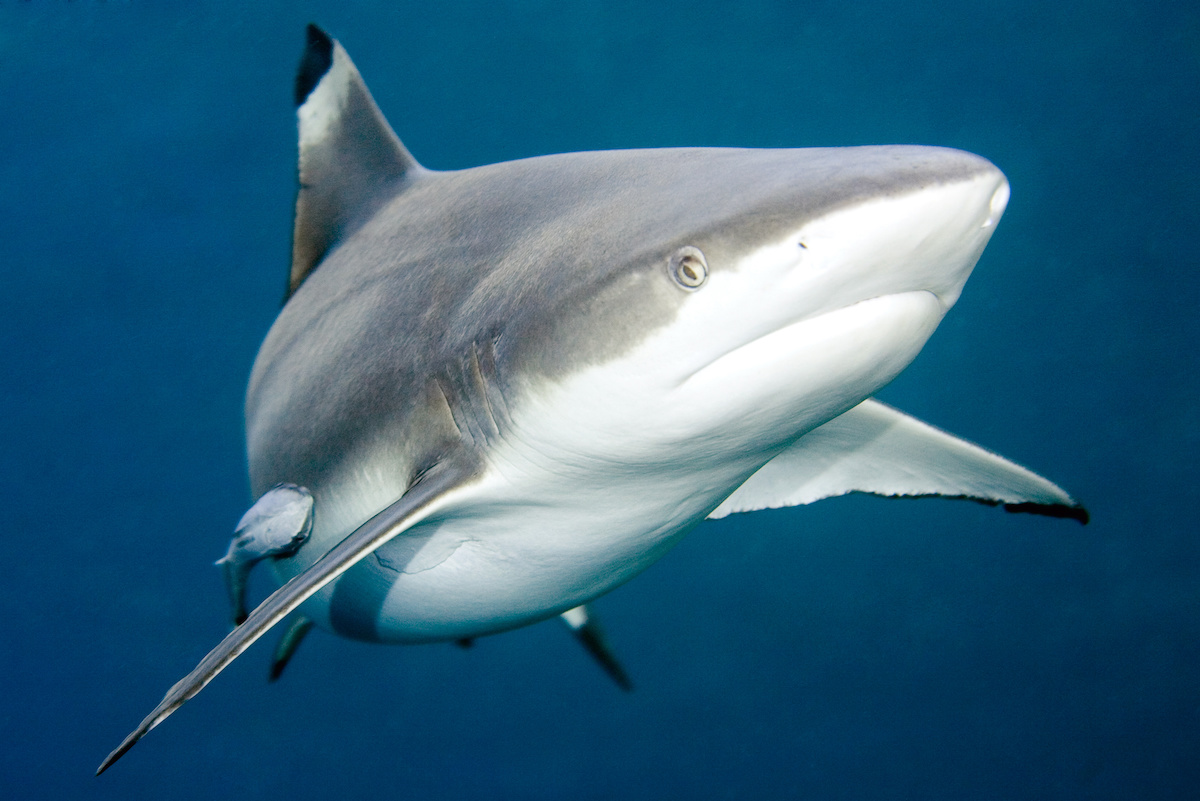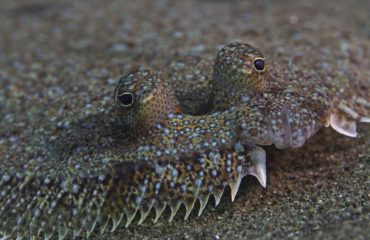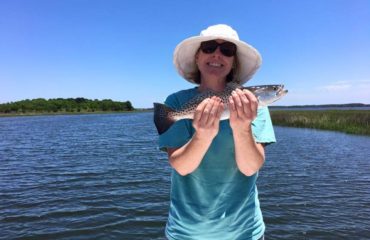This is a continuation of our What Sharks are in the South Carolina Waters Series. This blog is about Blacktip Sharks. If you haven’t been shark fishing, you are in for an exciting fishing adventure.
The other sharks highlighted in this series are:
- Hammerhead (Bonnethead are in SC)
- Blacknose
- Sharpnose
- Spinner
- Lemon
The Atlantic Blacktip Shark is also known as black fin shark, blacktip whaler, common blacktip shark, gray shark, requiem shark, small blacktip shark, and spot-fin ground shark.
Appearance
Here is a description of the Blacktip’s appearance:
- Gray to gray-brown, with white on the belly and a conspicuous wedge-shaped band or Z-shaped line on the sides.
- Their pectoral, dorsal, and tail fins have black tips, but the anal fin is white.
- Their bodies have a torpedo shape, which allows them to swim through the water with little effort.
- These sharks are often confused with spinner sharks due to their similar size, shape, coloration, and behavior. Both species are known for leaping and spinning out of the water while feeding on schools of fish.
Size
Here is information about the size of this shark:
- Grow to about 8 feet long
- Size at birth is 20-26 inches
- Average adult size is around 4.9 feet
- Weight about 40 lbs.
- It can grow up to 220 pounds
- Age at maturity for males is 4-5 years
- Age at maturity for females is 6-7 years
Habitat
The blacktip shark can be found in warm coastal waters around the world where it often encounters people. They frequent bays, estuaries, coral reefs, and the shallow waters off beaches and river mouths.
Diet
Blacktip sharks use a unique method in catching their prey. After leaping in the air, they rotate and splash their backs down on schools of bony fishes near the water surface. They also feed on skates, stingrays, squids, sardines, mackerels, mullets, snails, octopuses, and some other crustaceans. They feed on discarded fish and other sea creatures from fishing boats. Their main predators are large sharks.
Parthenogenesis
In 2008 DNA evidence confirmed that a female shark fertilized her own egg without the help of a male partner. This rare self-impregnating process is called parthenogenesis.
Near Threatened
Worldwide, the blacktip is listed by the IUCN as near threatened, largely because it’s considered quite tasty and often targeted for its meat and its fins, which are used to make shark fin soup.
Aggressive
Usually these timid sharks are not regarded as highly dangerous to humans. In the presence of food, they may become aggressive. Humans wading through shallow water are at risk of having their legs mistakenly bitten.
If you are looking to enjoy a day of fishing with friends and family, call us today to reserve a saltwater fishing charter. Our equipment is top of the line and well maintained for your safety and enjoyment. We take great pride in creating memory-making experiences with families and friends.
Get your family together and Book your next fishing charter today!
Step on board with All In One Charters; Charleston’s top inshore fishing charter company. We specialize in customized inshore fishing charters; as well as nearshore, and offshore fishing. Join Capt. Ronnie for an action-packed day of saltwater fishing, exploring Charleston’s endless inshore waterways in search of top species like Red Drum, Trout, Flounder, Black Drum, and Sheepshead, as well as the chance of some exciting battles against big Bull Reds, or Hammerhead Sharks for some added adrenaline. Book your fishing charter today or call at 843-330-3272.



